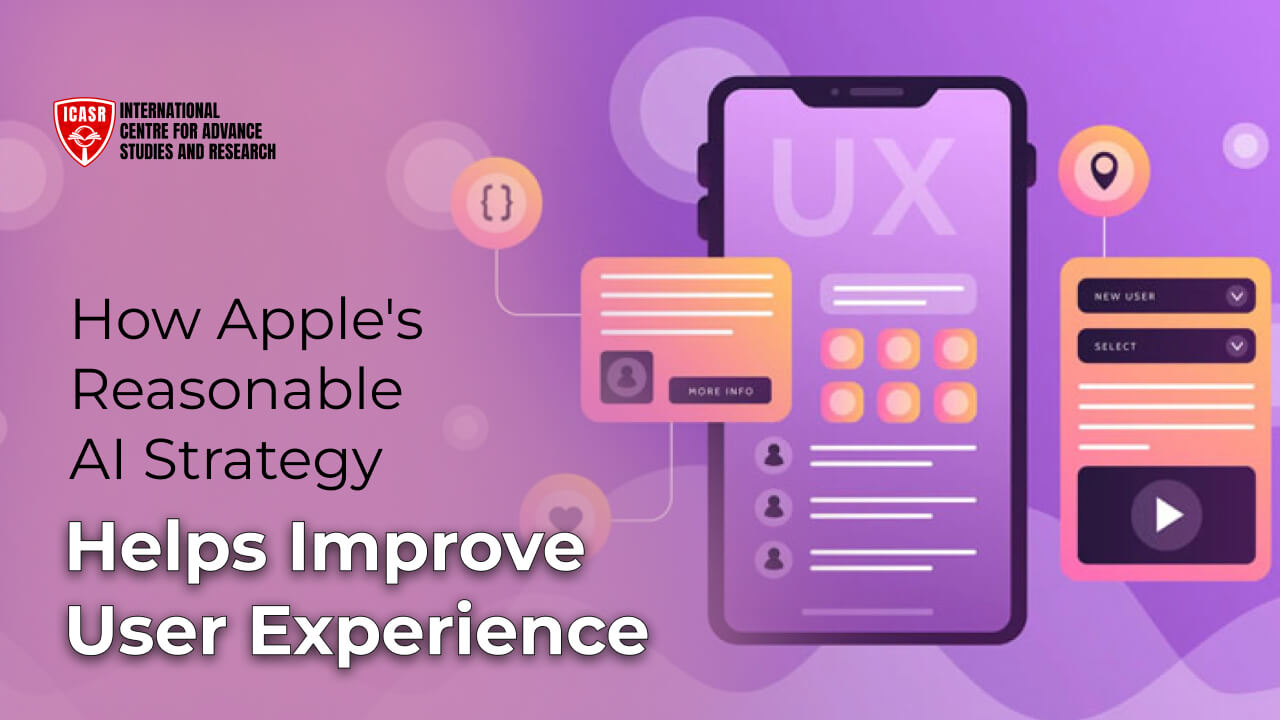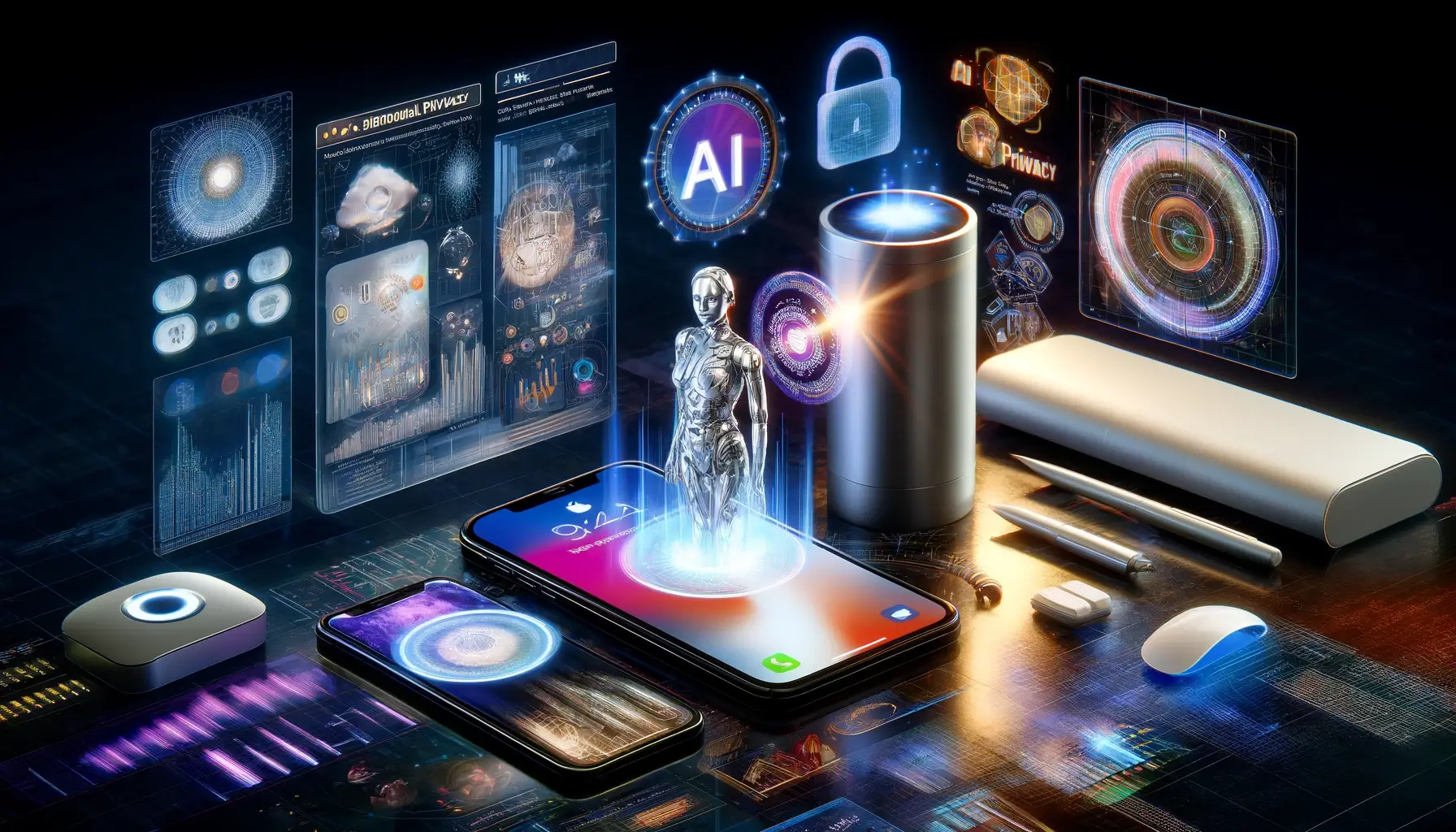Apple's approach to AI transparency is touted as unique and different from its competitors, with more running workloads on devices instead of banking on cloud-based resources. Apple is known to have a tightly linked hardware and software ecosystem that allows easier engagement with AI on their devices. With the stellar performance that AI has rendered the world, Apple is poised to make several updates and additions of new AI-powered features to Siri-the voice assistant that made it first to people's homes. Along with updates to Siri, refreshes for other Apple products, including macOS, iPadOS, iOS and more are anticipated with the new change in Apple's new AI strategy.
Amidst the drastic shift to AI and initiatives of tech moguls to AI-driven user personalization, let us shed light on how Apple integrates AI while simultaneously embedding its strategy on user privacy and prioritising its User privacy maintenance.
AI Integration and Apple AI privacy safeguards
Apple AI privacy safeguards have been the key aspect of its AI integration strategy, emphasizing maintaining user privacy. Flashback to when it initially began its AI integration, Apple introduced a framework called Create ML that enables developers to train AI models on Macs. Apple developers could use the framework within their own app for programming or coding for its devices, called Xcode. They also use Apple's own programming language Swift, different from AI development's commonly associated programming language, such as Python.
In its effort to easily integrate AI models into iPhone apps and other devices, Apple also updated its Core ML software. The models are considerably smaller and consume less space on devices as they get embedded into the apps. This Core ML makes it possible to optimize a cloud-trained for Apple devices and with Create ML Apple's Mac essentially doubles as a server.
These methods align with Apple AI privacy safeguards, as user privacy is fully taken care of. Apple's approach to running and training on ML models on local devices guarantees users' data remains restricted to their devices. Furthermore, Apple apps using Core ML were projected to never face network issues, rather offering faster computation as it occurs on the users' devices.
One big advantage of Apple's approach to AI integration and its unique strategy is how it addressed major issues encountered by developers: As on-cloud training of models is expensive and making them operable on mobile devices is difficult.
Apple made it feasible to train models on local devices at reasonable speed by providing tools. It also proved to be a more cost-effective method for developers to train models locally on a single machine than doing it on the cloud. Further, the easy integration of AI to apps for iOS was projected to lead to greater engagement, ultimately bringing revenue growth for its App stores.
Apple's approach to AI transparency is well reflected in its AI- strategy's core pillar - Privacy, unlike its competitors with heavy reliance on cloud-based data collection and processing. Its strategy of on-device machine learning tasks aids in minimizing the amount of personal data transmitted to remote servers, thereby mitigating the risk of misuse and privacy breaches. This Apple AI privacy safeguard provides its users with an array of features including predictive text in messages, facial recognition in photos, etc, without compromising user privacy.
Another significant technique that enables Apple AI privacy safeguard is the differential privacy it employs when cloud processing is required. This method entails obscuring data of the individual users while extracting insights from the data. In the differential privacy method, random noise is added to the data prior to its analysis, making it hard to trace back to one specific user. With differential privacy, Apple is capable of enhancing its AI models and services without accessing personal information directly. Apple's focus on privacy has made all the difference and made them stand out as competitive for privacy-conscious consumers.
AI-driven User Personalization and Apple's New Features
Apple has been knitting artificial intelligence and machine learning, through a multi-faceted strategy, into every facet of its ecosystem. In the current space, this tech mogul is moving towards a strategic shift as they revamp Siri and introduce several other advanced AI capabilities. These new AI features and sprucing up of Siri are again designed to function on-device, aimed at reducing data exposure and reliance on external servers. The new strategy continues to stick to its policy of maintaining data privacy while simultaneously ensuring automated processing and responsiveness.
Apple is moving forward to AI-driven user personalization by focusing on enhancing user interaction through smarter artificial intelligence and working its way to materializing such advancements into tangible improvement. Apple is all set to redefine the potential of mobile technology, ensuring that its product remain essential personal tools in our day-to-day lives.
In the new updated Siri, Apple will leverage a new framework called Ajax, again Apple's own creation, for various ML initiatives. This framework will enable Siri to perform more complex tasks and offer impressive AI-driven user personalization and a more intuitive user experience. Siri is thus poised to become more responsive and capable of comprehending the nuances of the users' needs.
Apple is en route to creating more advanced NLP models that will enable Siri to be more conversational, and context-aware, comprehend complex queries, maintain coherent dialogues across multiple turns, and provide more customized responses based on the interaction history and preferences of the users. Another major update is Siri's expansion of multilingual capabilities, where users will be able to interact with Siri in multiple languages simultaneously.
Alongside Siri, Apple, in its initiative of AI-driven user personalization, is rolling out several features and frameworks across its set of apps and services. Mention could be made of Apple Music -playlist generation, and Numbers, Keynote and pages for productivity apps.
All these AI-driven user personalization that Apple is poised to introduce is based on its ethical practice of privacy safeguarding. The tech mogul will continue to prioritise the privacy of its users as it continues to explore methods to further improve the security and transparency of how Siri handles data. The process will further entail Apple using techniques of advanced encryption processing of sensitive queries on-device and well-defined user controls over the data shared with Apple. Apple's approach to AI transparency is also placed on its core principle of ensuring users' privacy.


